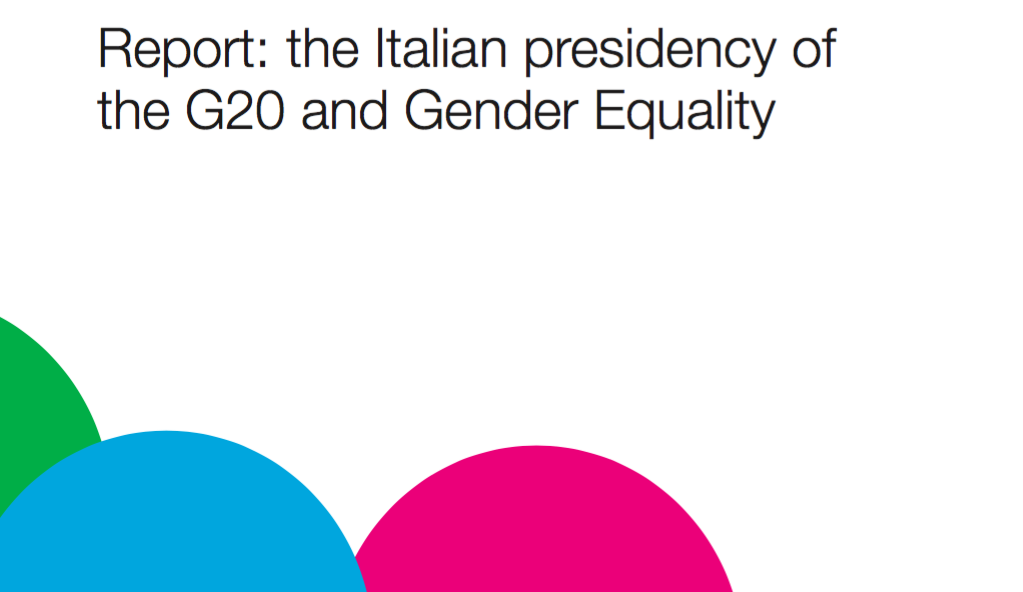In 2021, the G20 was chaired by Italy: among the many relevant topics, including the response to the pandemic and strengthening resilience to future health crises, that of gender equality, presented as a priority. For the first time in the history of the G20, a Conference on the empowerment of women was organized in Santa Margherita Ligure, held on 26 August last.
As amply demonstrated over the past two years, COVID-19 has exacerbated and brought to light the structural and systemic inequalities that already exist globally. We also know that the crisis mainly affects women, girls, LGBTQI + people and marginalized groups who find themselves at the intersection of various forms of discrimination. The worsening of health, economic and social conditions and the departure from the Sustainable Development Goals make the issue of gender equality a more urgent problem than ever.
The report we are proposing analyzes how gender was taken into account during the 2021 G20, reflecting on the Conference on Women’s Empowerment and its results, also presenting an overview of the recommendations put forward by the Civil20 working group on gender. , the platform of international civil society that followed the work of the entire process. The report also focuses on the future challenges civil society organizations may face to ensure that a gendered approach to economic recovery is applied during the next G20 and a roadmap for future Civil20 gender working groups.

